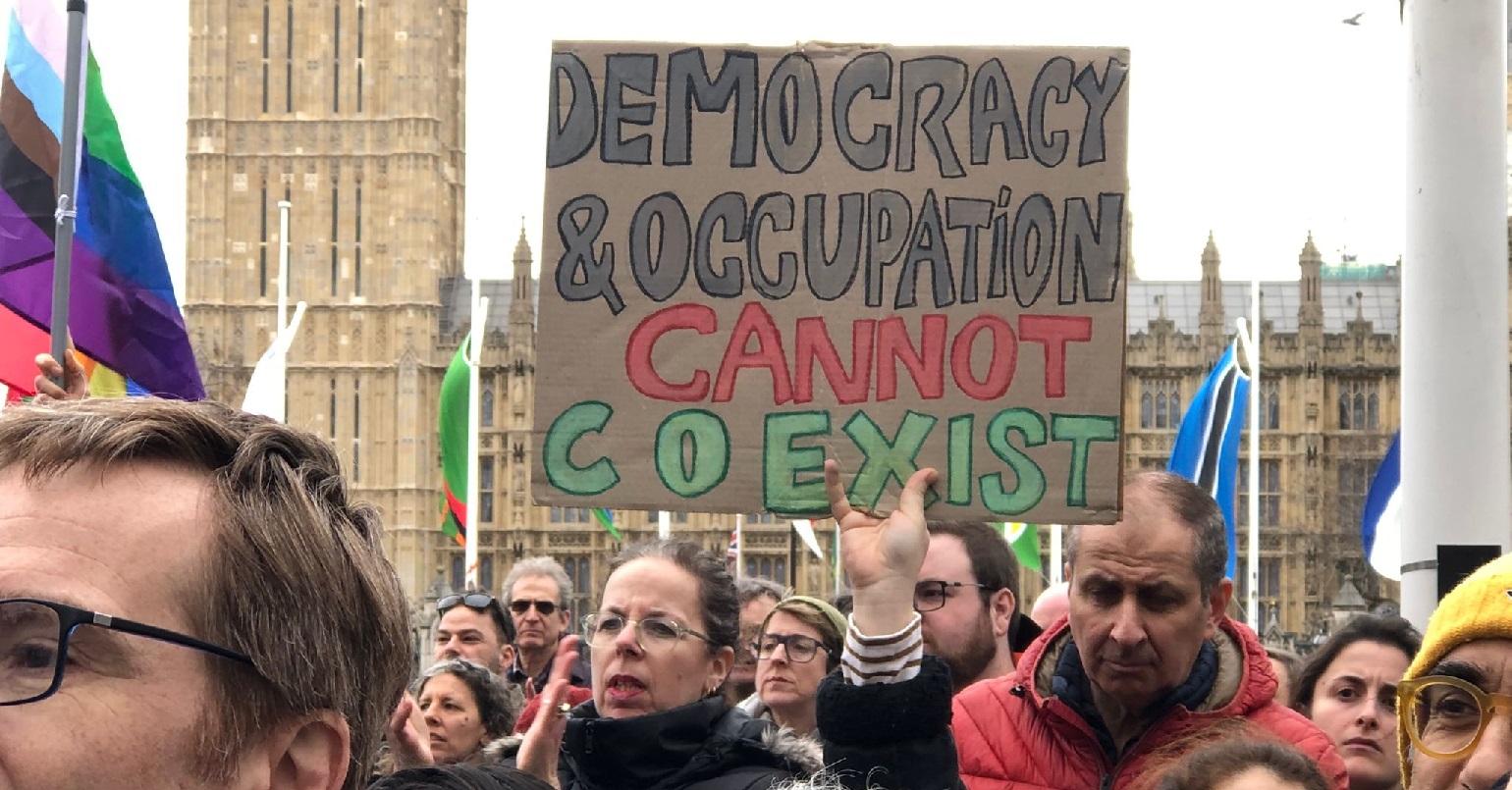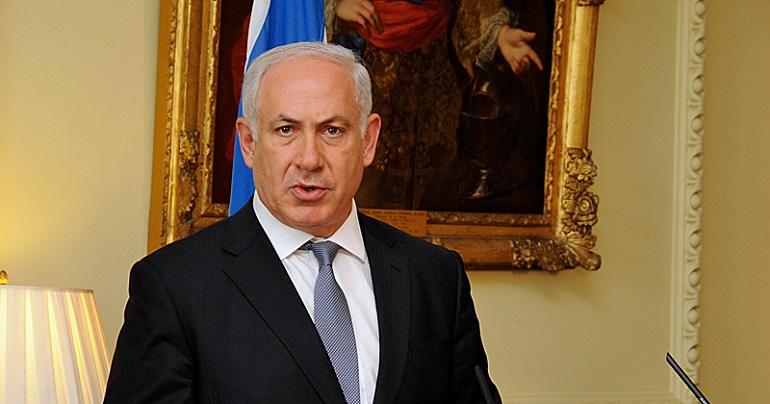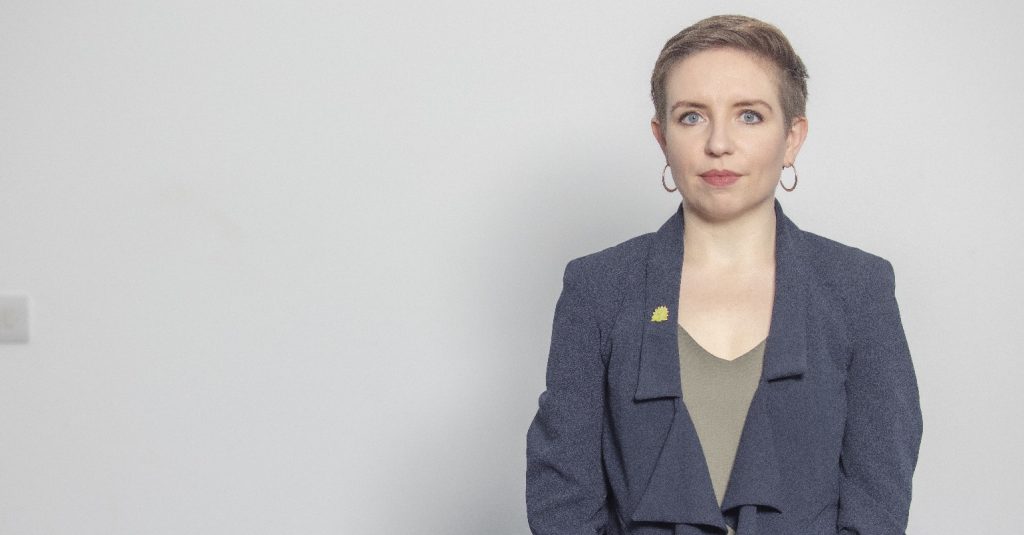Why the Jewish diaspora is turning against Israel

Last Sunday saw protests against the Israeli government in cities across the world, something that is not unusual following Israel’s long occupation of Palestinian land. The difference was the prevalence of Israeli flags and that while the occupation featured, most signs focused on the seemingly dry subject of judicial reform in Israel. Alongside this, diaspora Jewish institutions issued unprecedented criticism of the government. It seems that the Israeli government has found the key to accelerate the fracture both in their own society and within the wider Jewish global community. How has this happened?
The protests and the reform
The protests were organised by Israeli expats and seemed to be predominantly attended by people who identify as Zionists. They were allied with massive protests in Israeli that in their 10th week are still drawing 300,000 people (equivalent protests in the UK would put the entire population of Wales on the streets). Alongside this, a collection of historians, economists, bank CEOs and tech workers have written letters speaking out against the judicial reforms. The Bank of Israel governor Amir Yaron has warned they will damage the economy. The Israeli president Isaac Herzog – before unveiling a compromise – joined the chief of the Israeli Defence Forces (IDF) Herzi Halevi in warning of the existential risk. In a previously unthinkable move, reservists warned they would refuse to serve if the new law passed.
The proposed reforms as originally proposed would enable a majority of the Israeli parliament – the Knesset – to override Supreme Court decisions even if this would breach the country’s basic laws. The Supreme Court is – not coincidentally – the Israeli institution most trusted by Arab citizens. This could pave the way for the fascists currently in government in Israel to roll back women’s, LGBTQIA+ and Arab rights, as well as pave the way for the annexation of the West Bank. Significantly, it could quash a corruption investigation into the prime minister Benjamin Netanyahu. It would likely make Israel an elective dictatorship, with complete control over unenfranchised Palestinians in the West Bank.
At the same time, though this is not the focus of the protests, there has been an upsurge in settler violence against Palestinians. Nominally triggered by a Palestinian shooting, settlers have been carrying out revenge attacks. The army, under the direction of new far right ministers, has mostly stood aside, or blocked Israeli counter protestors. The self-confessed fascist Israeli finance minister Bezalel Smotrich initially joined calls for the village of Huwara to be wiped out.
In addition to the protests, this government has drawn criticism from a wide spectrum of liberal and left wing Jewish institutions. This is unsurprising. However, it has also generated major criticism from previous stalwart allies of the Israeli government. In the USA this has included the Anti Defamation League (ADL) and the Jewish Leadership Organisation. In the UK, it’s included the Union of Jewish students, embassy staff, the current and former chairs of the Jewish Leadership Council and the Jewish Board of Deputies. Even the director of the United Jewish Israel Appeal director Mandie Winston released a tepid statement that suggested the current Israeli government might not be an entirely good thing and the Zionist Federation has committed to hold official meetings with Israeli government ministers.
This is hugely significant. It has not happened in Jewish community in either the UK or the USA since the 1950s.
How did we get here?
Israel has long enjoyed reflexive support from most Jewish diaspora institutions, often almost uncritically. This makes considerable sense as demographically, culturally and spiritually Israel holds a large portion of world Jewry. There’s little surprise that 50% of European Jews consider supporting Israel important to their Jewish identity. It holds considerable spiritual significance, providing research and training for leaders. Around 50% of Jewish 16-year-olds have gone there every summer since the 1960s. Many Jews also have family there. The Israeli state has also also sometimes been attacked disproportionately and in a manner which has been somewhat reminiscent of antisemitic tropes. The instinct of the diaspora community has therefore been to defend Israel.
This has not always been the case. Diaspora Jewry has a long tradition of concern about Israel. However, by the mid-2000s these various traditions where in retreat. The reasons for this are varied. A key factor was the optimism engendered by the outbreak of peacemaking and the Oslo Accords. Additionally, Israel’s adoption of domestic liberalism in areas such as LGBTQIA+ rights and migration also appealed to liberal thinking. Even the mild criticisms of Israel advocacy group J Street, which simply suggested that some criticism of Israel was valid were deemed too much by the mainstream of the diaspora. Meanwhile, the reaction to Yachad – a milder version of J Street was in some quarters apoplectic.
The community’s movement towards last week’s position has again been driven by a range of forces.
One long term trend has been the divergence between principles of diaspora Jewry and the right wing governments in Israel. Jews have historically been found disproportionately identifying with the left of the political spectrum and the community’s youth are growing up in cities and attending universities that in the USA and UK have trended increasingly towards the parties of the left with a tendency to advocate for universal principles of human rights. Many of these efforts have linked to deep seated Jewish traditions of non-violence and social justice. For this group to see Shabbat prayers said by settlers standing in front of towns they have set on fire is particularly shocking. Likewise, many Jewish community organisations have been active in refuge advocacy. To adopt these positions in this environment while maintaining support for an increasingly illiberal apartheid state requires a moral disconnect that has become increasingly difficult to square. It is telling that the first criticism the Jewish Board of Deputies made in half a century of the state of Israel was when the state arrested two UK teenagers on a gap year protesting for equal prayer access for women at the Western wall.
The second force is that the Israeli government shifted to the right, while the Zionist left has effectively ceased to exist as a meaningful political force. This has increased the disconnect with the diaspora community. Hillel Halkin argues that this shift is an inevitability of the occupation. He says: “According to a survey last year, a quarter of all nonreligious Israelis between ages eighteen and twenty-four, and half of all religious ones, thought Israel’s Arab citizens should be stripped of the right to vote! Yet why should this surprise us? The main contact with Arabs that most of these young people have had has been while serving in the territories as soldiers. Some of them may be disturbed by having to act there as the masters of a people who have no rights, no freedom of movement, and no one to protect or defend them except a corrupt Palestinian Authority that has little power itself.“
It is increasingly hard to hide behind the prospect, promised by Oslo of a two state solution, when it is increasingly well evidenced that Israel is practising apartheid. This presents if nothing else a PR problem for Israel’s defenders. Long have the lines been used that “Israel is a democratic state” and “Israel is seeking peace”. Now these sound increasingly hollow. Joshua Leifer at Jewish Currents point to many USA organisations whose concern seemed to be the PR implications rather than judicial reform legislation itself.
This brings us to the third force. As the totemic liberal Israeli voice Noah Efron argues on the Promised podcast, Israel was founded predominately as a state for the European Jewish establishment. The long Netanyahu government is a rebuke to this and the tearing down of the Supreme Court and the other institutions is changing the country fundamentally. Again and again in the denunciations of the judicial reforms refer to losing the country they know. The Israeli right is no longer only going after Palestinians, but also Jews they dislike too. The diaspora community is responding so negatively to the judicial reforms in part because the Israeli establishment has risen in rebellion against it.
This trend can be overstated. The Union of Jewish Students denunciation was followed by attacking Queen Mary Students’ Union for passing a motion in support of the Boycott, Divestment and Sanctions (BDS) movement. J Street in the USA maintained a business-as-usual approach. The ADL’s mild expression of concerns were sandwiched between expressions of eternal loyalty to Israel. This is typical of the mild language, of many of these so-called denunciations. It seems very likely that after mouthing words, most of these establishment organisations will continue on exactly as they always have done, particularly, after the president Herzog proposed a compromise on judicial reforms.
However, this past month and the widespread Jewish dominated protests represent a watershed. The community is still closely tied with and defensive of Israel but its trajectory is now clear. New post-Zionist institutions are growing in strength and variety. This is partially a generational change, as the emerging Jewish leaders have no memory of the opposite of the Oslo accords and little memory of the communal consensus that Israel was above criticism. And as Israel becomes increasingly divorced from the wider Jewish world, the gap will only grow. In the meantime Palestinians towns will burn.
PS. We hope you enjoyed this article. Bright Green has got big plans for the future to publish many more articles like this. You can help make that happen. Please donate to Bright Green now donate to Bright Green now.



Leave a Reply